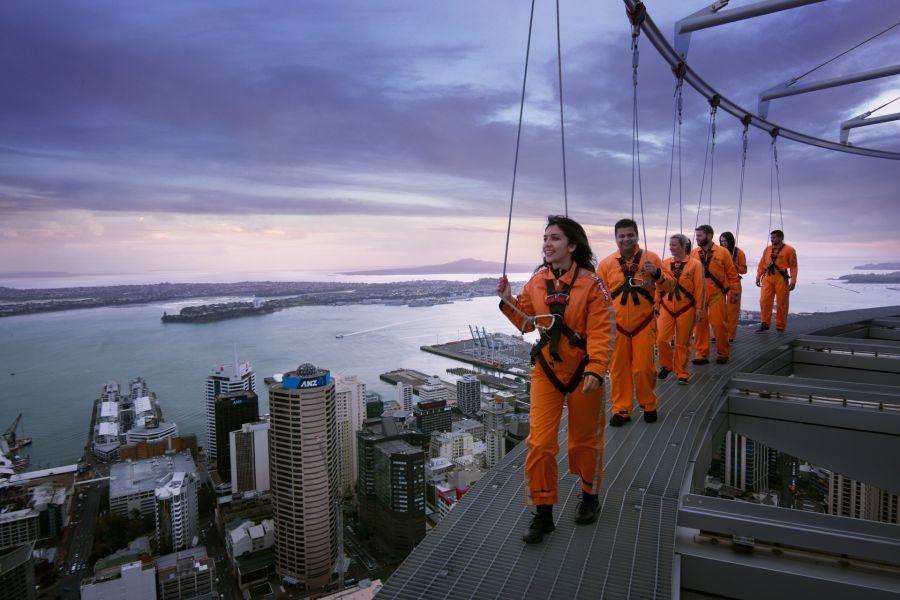Tourism has long been a cornerstone of New Zealand's economy, contributing significantly to its GDP and employment. Despite global disruptions like the COVID-19 pandemic, the sector's resilience and adaptability have been noteworthy. Understanding the role tourism plays in New Zealand's economic resilience provides invaluable insights for property investment specialists looking to capitalize on emerging trends.
New Zealand's Tourism Landscape: A Vital Economic Driver
New Zealand's tourism industry is a key economic pillar, generating approximately 5.8% of the country's GDP and supporting over 8% of the total workforce, according to Tourism New Zealand. The sector's vibrancy stems from the nation's diverse attractions, ranging from stunning natural landscapes to rich cultural experiences.
However, the pandemic-induced travel restrictions highlighted the sector's vulnerabilities. The Reserve Bank of New Zealand reported a substantial GDP contraction of 12.2% in the June 2020 quarter, largely attributed to the tourism slump. Yet, the industry's recovery trajectory showcases its resilience and adaptability, driven by innovative strategies and domestic tourism campaigns.
Case Study: Queenstown's Adaptive Tourism Strategy
Queenstown, often dubbed the adventure capital of New Zealand, faced significant challenges during the pandemic. The town's economy heavily relies on international visitors, making it vulnerable to travel bans and restrictions.
Problem:
- Queenstown's tourism sector faced a 90% drop in international visitors, severely impacting local businesses.
- Economic data from Stats NZ indicated a substantial decrease in regional GDP, reflecting the dependency on tourism.
Action:
- Local authorities and businesses pivoted towards domestic tourism, launching campaigns like "Do Something New, New Zealand" to attract Kiwi travelers.
- Investment in infrastructure and digital marketing strategies enhanced the visitor experience and broadened market reach.
Result:
- Domestic visitor numbers increased by 45% within six months, revitalizing the local economy.
- Businesses reported a 30% increase in revenue compared to pre-campaign figures, showcasing successful adaptation.
Takeaway:
This case study highlights the importance of flexibility and innovation in tourism strategies. Property investors can glean insights into the potential for growth in regions that effectively leverage domestic tourism.
Data-Driven Analysis: The Economic Impact of Tourism
Recent data from the Ministry of Business, Innovation and Employment (MBIE) underscores tourism's critical role in New Zealand's economic resilience. In 2021, domestic tourism expenditure increased by 17%, compensating for the decline in international travel revenue. This shift underscores the sector's adaptability and the potential for sustained growth.
Furthermore, the tourism sector's multiplier effect stimulates various industries, including hospitality, retail, and transport. This interconnectivity amplifies the economic impact, making tourism a strategic focus for regions aiming to bolster economic resilience.
Contrasting Viewpoints: Balancing Tourism and Sustainability
While tourism offers economic benefits, it also presents challenges, particularly concerning environmental sustainability. The debate centers around the balance between economic gain and ecological preservation.
Advocate Perspective:
- Proponents argue that tourism drives economic growth, creates jobs, and supports local businesses. Stats NZ reports indicate that regions with robust tourism sectors experience higher employment rates and economic diversity.
Critic Perspective:
- Critics highlight the environmental toll of mass tourism, including increased carbon emissions and degradation of natural habitats.
- Environmental groups advocate for sustainable tourism practices to mitigate these impacts.
Middle Ground:
The integration of sustainable tourism practices, such as eco-friendly accommodations and carbon offset programs, can balance economic benefits with environmental conservation. This approach aligns with New Zealand's commitment to sustainability and positions the tourism sector for long-term success.
Common Myths & Mistakes in Tourism Investment
Myth vs. Reality
Myth: "Tourism is only lucrative in urban areas." Reality: Rural and regional tourism offer significant opportunities. A report by MBIE highlights that regions like Northland and West Coast have seen increased visitor numbers due to unique local experiences. Myth: "Sustainability efforts hinder profitability." Reality: Sustainable tourism practices can enhance profitability by attracting eco-conscious travelers and reducing operational costs. According to a Deloitte report, businesses adopting sustainable practices see a 20% increase in customer retention.
Biggest Mistakes to Avoid
- Ignoring Market Trends: Failing to adapt to changing consumer preferences can lead to missed opportunities. Staying informed through resources like NZ Tourism Insights is crucial.
- Overlooking Sustainability: Not integrating sustainable practices can result in long-term environmental and reputational damage.
- Underestimating Domestic Tourism: Focusing solely on international visitors can be detrimental. As seen during the pandemic, domestic tourism can sustain and grow the sector.
Future Trends & Predictions
Looking ahead, New Zealand's tourism sector is poised for transformation. According to a McKinsey report, digital innovation and sustainable tourism practices will be pivotal in reshaping the industry. By 2028, it is predicted that 40% of tourism businesses will integrate AI-driven personalized travel experiences.
The ongoing emphasis on sustainability will see eco-tourism becoming a significant growth area. New Zealand's natural beauty positions it uniquely to capitalize on this trend, attracting environmentally conscious travelers globally.
Conclusion
New Zealand's tourism industry exemplifies resilience and adaptability, offering valuable lessons for property investors and business strategists. By understanding the sector's dynamics and integrating sustainable practices, investors can harness the potential of tourism-driven economic growth. What strategies will you implement in your investment plans to leverage these insights? Share your thoughts and join the conversation!
People Also Ask
- How does tourism impact New Zealand's economy? Tourism contributes significantly to New Zealand's GDP and employment, supporting over 8% of the workforce and driving regional economic diversity.
- What are the biggest misconceptions about tourism in New Zealand? One common myth is that sustainability hinders profitability. However, sustainable tourism practices can enhance customer retention and operational efficiency.
- What are the future trends in New Zealand tourism? By 2028, digital innovation and eco-tourism will drive the sector's growth, with 40% of businesses expected to adopt AI-driven personalized experiences.
Related Search Queries
- Impact of tourism on New Zealand's economy
- Sustainable tourism practices in New Zealand
- New Zealand tourism recovery post-COVID
- Investment opportunities in NZ tourism
- Future of eco-tourism in New Zealand

























